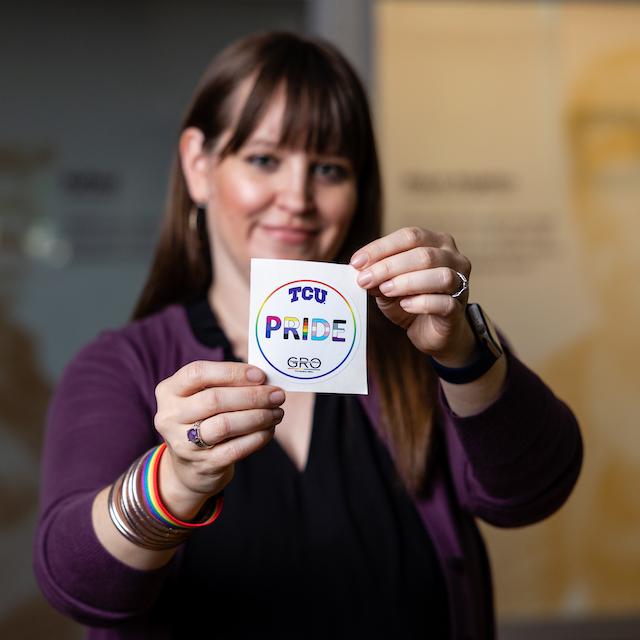
Pride Month: What Does it Mean to be an Ally?
Editor’s note: This story includes updates for 2023.
Merriam-Webster defines “ally” as “one that is associated with another as a helper; a person or group that provides assistance and support in an ongoing effort, activity or struggle.” In recent years, the term has been adopted specifically to a person supporting a marginalized group.
This Pride Month, TCU News talks to Amanda Swartz, Psy.D., a licensed psychologist in the Counseling & Mental Health Center, about what it means to be an ally and how to get involved in allyship at TCU.
What does it mean to be an “ally” to the LGBTQIA+ community?
Quite simply put, an LGBTQIA+ ally is someone who supports and educates themselves about and speaks out and advocates for LGBTQIA+ people and/or community.
How do I incorporate that at TCU?
Allies at TCU actively engage with LGBTQIA + students in an open and affirming way. All TCU students need to be fully and authentically welcomed, as they are. Making sure classroom discussions, interactions and assignments are inclusive and welcoming of LGBTQIA + people is essential. Students focused on creating safety within friend groups and organizations allow LGBTQIA+ students to authentically engage with their community and peer groups. Every member of the TCU community bears the responsibility of being an ally.
How do I let people know that they can consider me an ally?
One easy thing to consider is making your office, classroom or room be visibly accepting, such as having a rainbow flag or TCU ally sticker displayed, which can create a visible space of inclusivity and comfort. This communicates allyship and safety to members of the LGBTQIA+ community. Each step toward inclusivity creates a more welcoming and accepting TCU.
Are there any other ways to get involved?
TCU’s Gender Resource Office offers several trainings, including Allies Training, which trains faculty, staff and student groups on how to be an ally both on and off campus. Nathan Faust, associate director of GRO, is an excellent resource. Students can access Wellness Workshops that address relevant topics, while faculty and staff can consider the R.I.S.E. program or check with the Office of Diversity and Inclusion and Human Resources for other inclusive programming.
